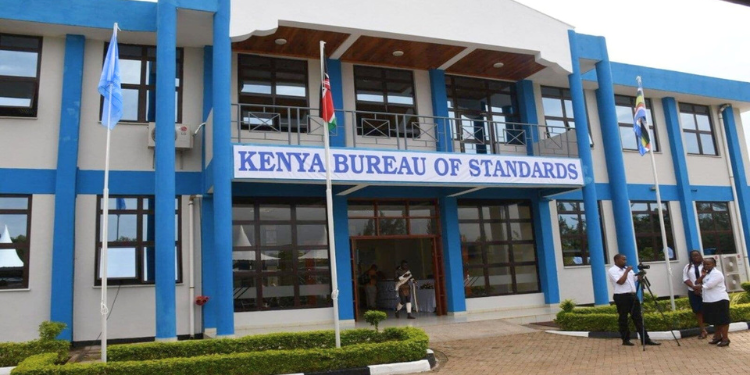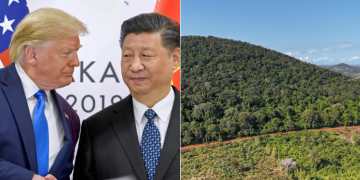The Kenya Bureau of Standards (KEBS), through the National Standards Council, has gazetted a new set of Kenya Standards that officially took effect on 23 October 2025.
The announcement, published under Gazette Notice Nos. 15384 and 15385 in the Kenya Gazette Vol. CXXVII No. 219, marks a significant policy move aimed at strengthening product quality, safety, and competitiveness across several sectors, particularly food processing, petroleum, and fisheries.
According to NSC, the new standards were developed under the authority of the Standards Act (Cap 496) and represent part of Kenya’s ongoing effort to harmonize domestic specifications with regional and international benchmarks, including those set by the East African Community (EAC) and the International Organization for Standardization (ISO).
New Changes for Food and Fuel
Among the most notable changes is the replacement of KS 91:2022 — Petroleum and Petroleum Products: Liquefied Petroleum Gas (LPG) — Specification with KS EAS 1105:2025, a new regional standard aligning Kenya’s LPG safety and quality benchmarks with the East African Standardization Framework.
This update responds to rising demand for cleaner household fuels and the need for uniform product specifications across East Africa to prevent substandard imports and improve safety in distribution.
The food sector received the most comprehensive updates with the newly issued KS 2430:2025 and KS 2431:2025, which establish revised specifications for ginger and garlic pastes, respectively, and update hygiene, labeling, and microbial load parameters to ensure compliance with international food safety systems.
The previous 2018 editions of these standards have been withdrawn.
Milk and Cereals Standards
Other major additions include KS EAS 33:2025, the fourth edition of the yoghurt specification, and KS EAS 1008:2025, covering fermented milk.
These standards detail composition, acidity, flavouring, and bacterial count requirements, aligning local dairy manufacturing with East African regional norms.
The Council also introduced KS EAS 1191:2025 for flavoured milk and KS EAS 1193:2025 for lactose-free milk, two rapidly growing categories in Kenya’s urban retail market.
The updates will ensure improved labeling, quality control, and fair competition for producers.
The cereals and grains subsector also saw several new standards aimed at refining wheat flour quality and consistency.
KS ISO 5530-1:2025 and KS ISO 5530-2:2025 introduce advanced methods for testing dough absorption and extensibility, guidelines critical to baking performance and industrial processing.
KS ISO 17715:2025 revises the amperometric method for starch damage analysis, improving accuracy in milling quality assessments.
These measures will benefit both local millers and exporters as Kenya seeks to expand its value-added grain exports.
Fisheries and Aquaculture
In fisheries and aquaculture, KEBS adopted a series of African Regional Standards (ARS) designed to support the country’s blue economy agenda.
New specifications such as KS ARS 1132-3:2024 and KS ARS 1132-5:2024 provide updated methods for detecting parasites and determining selenium levels in fish and fishery products.
Meanwhile, KS ARS 1110-1 to 1110-3:2023 cover standards for dried sardines, anchovies, and freshwater species, promoting food safety and trade in processed marine and inland fish products.
Also Read: Oburu Under Fire for Attending Wedding Soon After Raila Burial
To improve aquaculture practices, KS ARS 1106:2023 and KS ARS 1107:2023 outline good production and environmental management principles for tilapia and freshwater farms, replacing earlier versions issued in 2018.
Withdrawn Standards
A number of outdated standards have been withdrawn to avoid duplication and maintain relevance.
These include earlier versions of the wheat flour, yoghurt, fermented milk, and aquaculture specifications, some of which date back over a decade.
The revision process was guided by technical committees comprising industry experts, consumer representatives, and regulators.
KEBS Managing Director Esther Ngari, who signed the gazette notice, emphasized that the declared standards are part of Kenya’s continuous alignment with regional and international quality systems.
She said the updates will strengthen Kenya’s position in the East African market and assure consumers of safe, high-quality products.
Also Read: Wajackoyah’s Roots Party Overhauls Its Leadership
The new standards come as the government intensifies its industrial policy reforms under Vision 2030 and the Bottom-Up Economic Transformation Agenda.
By modernizing quality frameworks and supporting innovation, the declared standards are expected to enhance manufacturing competitiveness, protect consumers, and foster regional trade harmonization across East Africa.
The changes, according to KEBS, reflect the government’s broader industrial modernization agenda and its commitment to consumer protection, environmental sustainability, and export competitiveness.
Follow our WhatsApp Channel and X Account for real-time news updates.













































































